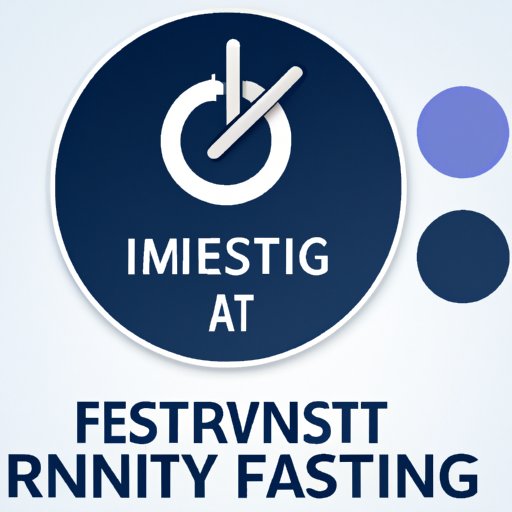
I. Introduction
Fasting is the practice of abstaining from food or drinks for a certain amount of time, usually for cultural, religious, or health reasons. While skipping a meal here and there may not have a significant impact, fasting for a whole day can have various effects on the body and mind. In this article, we will explore what happens if you don’t eat for a day, including the physical and mental effects, spiritual benefits, how to prepare for a successful fast, the influence of societal factors, and different fasting methods.
II. The Physical and Mental Effects of Fasting
When you don’t consume food for an extended period, the body starts breaking down its own fat and muscle tissues to provide energy. Although the body is capable of adapting itself to deal with such a situation, the process can come with some unpleasant symptoms.
Physical symptoms such as stomach grumbling, headaches, dizziness, and fatigue can occur during fasting. These symptoms are usually a result of low blood sugar levels, dehydration, and the accumulation of substances in the blood, such as ketones, which are normally produced during the digestion of fats. In severe cases, fasting may even lead to organ damage, particularly to the liver and kidneys.
Mentally, fasting can lead to mood changes, irritability, and difficulty concentrating. These effects are usually a result of the body’s attempt to conserve energy by slowing down mental and physical functions. However, it is essential to note that fasting affects everybody differently, and individuals may experience varying degrees of these effects.
It is essential to listen to your body and be aware of its signals during fasting. If the symptoms become overwhelming or unbearable, it’s necessary to stop immediately.
III. The Spiritual Benefits of Fasting
Fasting serves a religious or spiritual purpose in various cultures and religions. It helps people strengthen their spiritual connection, show devotion, and discipline their minds.
The benefits of spiritual fasting extend beyond religion. It can provide a sense of mental clarity, inner peace, and even increase empathy and compassion. Fasting can give people the chance to reflect on their lives and connect with a higher power.
Fasting provides various benefits for spiritual renewal in different religions and beliefs. Buddhists use fasting as a way to reach a state of enlightenment and spiritual understanding; Muslims fast during the month of Ramadan as a demonstration of their faith and as a way to purify the soul.
IV. How to Prepare for a Successful Fast
It’s essential to prepare your body and mind for a successful fast. One crucial thing to keep in mind is not to overdo it, especially for first-timers.
Start by easing yourself into the fast, reducing your food intake gradually over a few days. It’s crucial to stay hydrated by drinking plenty of water, but avoid caffeine and alcohol during this period.
On the day you plan to fast, avoid strenuous activities and take a rest if you feel overly exhausted. It’s alright to maintain light activities such as walking and gentle yoga, but do not push yourself beyond your limits.
It’s also important to set realistic expectations and goals for the fast. Don’t aim for a marathon of fasting when you’re starting. Start small and increase the duration gradually as you get more adept to the process.
V. The Societal Influences on Fasting
Societal factors play a significant role in determining if to fast or not. Cultural norms, peer pressure, and various forms of media can impact individuals’ perceptions of fasting.
Despite the potential risks of fasting, some people might feel compelled to fast due to peer pressure or because they think it’s necessary to lose weight or detoxify their bodies.
It’s crucial to understand the facts and make informed decisions about fasting. Fasting may not be the right choice for everyone, especially for people with certain health conditions, such as diabetes.
VI. Comparing Different Fasting Methods
Intermittent fasting, alternate-day fasting, whole-day fasting, and time-restricted fasting are some of the different types of fasting methods available. All these methods provide various benefits, although they may affect different people uniquely.
Intermittent fasting involves fasting for a certain number of hours and eating during a specific window. Alternate-day fasting involves switching between fasting and eating regularly. Time-restricted fasting is a form of intermittent fasting but involves shortening the eating window.
A whole-day fast is the practice of abstaining from food for a whole day, as explored in this article. Comparing the different fasting methods can help in selecting the most suitable option for an individual’s needs.
Conclusion
In conclusion, fasting is a personal journey that requires careful consideration of your overall health, expectations, and goals. We’ve discussed the physical and mental effects of fasting, the spiritual benefits, how to prepare for fasting, and societal influences, and different fasting methods.
Remember, fasting isn’t for everyone, and it’s essential to listen to your body and choose the method that works best for you. With the right preparation, fasting can provide numerous physical and spiritual benefits worth exploring.




